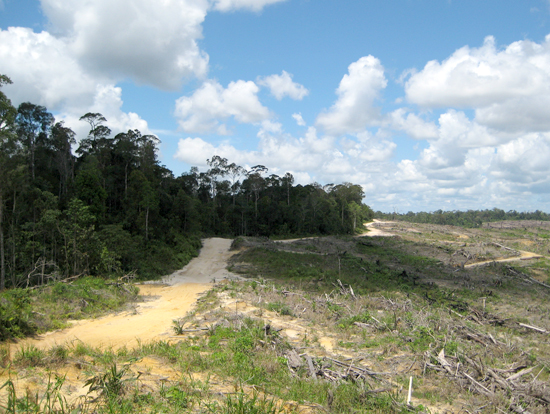
One of the main focuses at the Roundtable on Sustainable Palm Oil’s 8th gathering (RT8) is smallholders and their role in the world’s palm oil supply. Production by smallholders — a term typically applied to small farmers who grow a mixture of cash crops and subsistence crops — has grown to over 40%. The message this year, therefore, is that “The RSPO is for smallholders too,” not just for the huge companies growing palm oil with a large plantation model.
But what I saw yesterday casts significant doubt on this claim.
Representing the voices of small farmers who do not work on RSPO-certified plantations was Norsianus, the advocacy coordinator for SPKS, an independent union of oil palm farmers. He spoke on the main stage as part of a panel about “Sustainable Palm Oil for Smallholders and Communities.” Norsianus asked that the RSPO help make a difference for the people he represents.
During the question and answer period after Norsianus’ speech, a farmer from the community Dusun Binasari in North Sumatra made a 5-minute comment aimed at PT Ondop Perkasa Makmur (PT OPM)/Agri Nusantara Jaya, the palm company in his area. According to this man, PT OPM has condemned his community through violent land grabbing, criminalization of some community members, and the destruction of several homes. After six years of this treatment at the hands of PT OPM, the man said he had come to the RSPO meeting for help.
The response?
Despite the awkward silence, no company reps said anything and the panel leader repeatedly asked the man to get to the point. The final comment from the crowd was from an anonymous woman who said, “Smallholders and indigenous leaders have been making comments in the plenary for the past 5 years. They should give the floor to others.”
If a five-minute comment by someone whose life and community have been devastated by the palm industry is not taken seriously, I have to question the legitimacy of the RSPO.